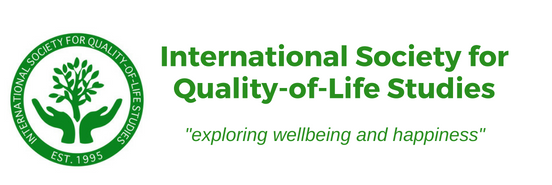Summary of My Experience at the ISQOLS Conference as a Developing Country Fellow
Written by Claire Biribawa

On 10th April 2024, I received the awesome news of being selected as the Developing country fellow and was thrilled about this opportunity and later on being able to travel for the ISQOLS at Kota Kinabalu. Quality of life may seem straightforward to understand, but to me, it was incredibly complex and is often overlooked, especially in the context of my background. Growing up in Uganda my childhood was vibrant and usually Iilled with laughter, games, and the pure joy of being alive. Our playgrounds were the open Iields, our toys crafted from banana Iibres or whatever we could Iind.
As I grew older, the realities of life in Uganda began to reveal themselves. The carefree days of childhood slowly gave way to an awareness of the world around me. In a country where where over 20% of the population livedon less than a dollar per day talking about Quality of Life is a far thought or even a concern because most are focusing on the next meal. Like in many Sub Saharan African Countries, there are other demanding challenges like infectious diseases, maternal health and now non communicable disease and research on quality of life and well-being is not given the priority it desearves. Africa isn't exactly topping the charts on quality of life. There isa dearth of literature coming out of the continent, and reports indicate that existing research is often unfocused and uncontextualized. Researching quality of life in Sub Saharan Africa seems a far off and arguably an abstract idea, far removed from the urgent public health issues and needs we are dealing with.
But should this be??
Attending the ISQOLS 2024 conference made me realise that it should not be…and should never have been. The ISQOLS conference in Kota Kinabalu, Sabah, was a profoundly enriching experience for me as a developing country fellow as it made me realize how deeply Quality of Life transcended every aspect of public health and not only that but ensuring that every person had the opportunity to live a fulIilling, digniIied life is of utmost importance. The conference provided a unique platform where I got exposure to various research Iindings on quality-of-life, wellbeing, and happiness, research methods and had the opportunity to engage with policymakers and leaders from various sectors.
In addition to the conference dinner, welcoming ceremony, and pre-conference workshops, one of the highlights of the conference was the stellar cast of keynote speakers Simon Eckermann, Andrew Clark presentation on Easterlin Paradox at 50 and Mohsen Joshanloo – Quest for Authenticity all concepts which was very new to me and opened my eyes to new values and ways of approaching QoL research.
The Elizabeth Eckermann Endowed Track on Gender and Quality of Life provided me an opportunity to understand how gender roles impact well-being. I was able to learn about successful policies, interventions and recommendations that have the potential to improve gender equality and quality of life, and although these were conducted outside Africa (Norway, India and Taiwan), they were quite relatable and could be adapted.
I could not miss out on the Valerie Moller Endowed Track for the Advancement of Quality of Life and Wellbeing in Sub-Saharan Africa. However, except for the paper which presented Iindings of work conducted in Northern Kenya, the rest of these papers presented Iindings from South Africa. Even by the attendance of this session, which comprised of mainly the speakers of the session and about three other people in the audience, the glaring lack of representation from the African continent was prominent. The unique challenges and perspectives of African countries are critical to the discourse, and their absence was a signiIicant gap in the conference.
The opportunity to meet and network with scholars from around the world, each with different methodological and theoretical perspectives, was invaluable. It reinforced the importance of generating research-based knowledge to contribute to the well-being of societies globally. A particularly memorable moment for me was a discussion with a fellow participant – Dr. Anita Mortlock who shared about her work with children and inspired me to apply some of these concepts with the work I am doing in Uganda about Children of Addicted Parents. This conversation encapsulated the spirit of the conference – a collective commitment to improving lives through knowledge and collaboration.
In conclusion, the ISQOLS conference was a transformative experience. I left the conference with renewed energy and a clearer vision for the future, committed to applying the insights gained to enhance the well-being of communities in Uganda and beyond. The experience also reinforced the importance of advocating for greater representation and inclusion of African voices in such global forums.
Claire Biribawa, ISQOLS 2024 Valerie Moller Fellow
